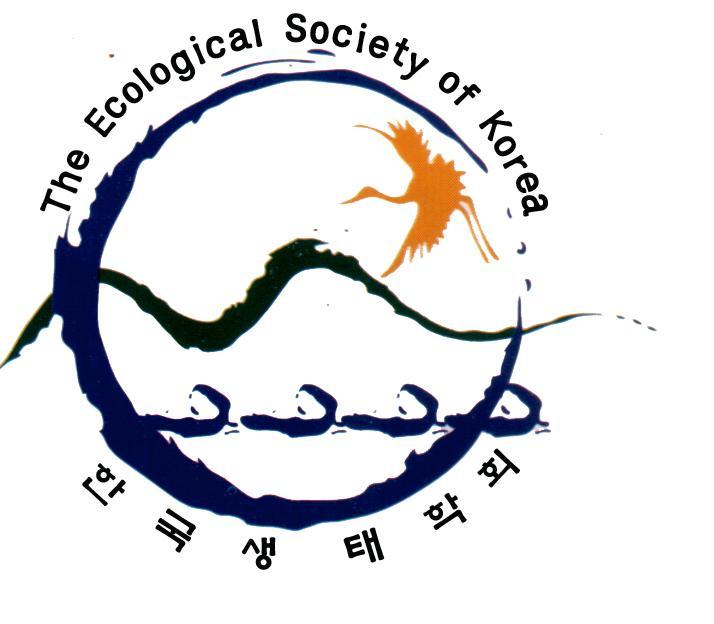- ENGLISH
- P-ISSN2287-8327
- E-ISSN2288-1220
- SCOPUS, KCI
 ISSN : 2287-8327
ISSN : 2287-8327
Toxic Effects of Serpentine Soils on Plant Growth
심재국 (중앙대학교)
Abstract
Serpentine soils are distributed in a small area in Korea, and generally exhibit high contents of Ni, Cr, Fe, Mn, Co and Mg. We investigated the growth of woody plants and herbs in the Andong serpentine area, Korea. Pinus densiflora and P. rigida growing on serpentine soils have high contents of Fe, Mg, Ni and Co, with contents approximately twice as high as those of non-serpentine plants. Tree species on serpentine soil also had lower ratios of tree height/DBH than trees in a control area. In greenhouse culture experiments on two bodenvag herb species, Setaria viridis and Cymbopogon tortilis, the biomass of the plants was significantly affected by soil type but not by seed origins. After 66 days, the growth of S. viridis and C. tortilis seedlings was significantly inhibited in serpentine soil, and the dry weight of each species showed significant negative correlations with soil heavy metal contents (Ni, Co and Cr). These results suggest that the growth of plants was inhibited by properties of the serpentine soil, and in particular, their high heavy metal concentration, which induced dwarfing in woody plants and reduction of total plant biomass in herbs.
- keywords
- Heavy metals, Plant growth, Serpentine soils, Ultramafic soils
참고문헌
Baker AJM. 1987. Metal tolerance. New Phytol 106: 93-111.
Baker AJM, Grant CJ, Martin MH, Shaw SC, Whitebrook J. 1986. Induction and loss of cadmium tolerance in Holcus lanatus L. and other grasses. New Phytol 102: 575-587.
Baker AJM, Proctor J, Reeves RD. 1992. The Vegetation of Ultramafic (Serpentine) soils. Intercepts Ltd., Andover, UK.
Brady KU, Kruckeberg AR, Bradshaw Jr. HD. 2005. Evolutionary ecology of plant adaptation to serpentine soils. Ann Rev Ecol Evol Syst 36: 243-266.
Brooks RR. 1987. Serpentine and Its Vegetation. A Multidisciplinary Approach. DCroom Helm. London and Sydney.
Chatterjee J, Chatterjee C. 2000. Phytotoxicity of cobalt, chromium, and copper in cauliflower. Environ Pollut 109: 69-74.
Claire LC, Adriano DC, Sajwan KS, Abel SL, Thoma DP, Driver JT. 1991. Effects of selected trace mtals on germinating seed of six plant species. Water Air Soil Poll 59: 231-240.
Fernandes JC, Henriques FS. 1991. Biochemical, physiological, and structural effects of excess copper in plants. Bot Rev 57: 246-273
Huillier L, Edighoffer S. 1996. Extractablility of nickel and its concentration in cultivated plants in Ni rich ultramafic soil of New Caledonia. Plant Soil 86: 255-264.
Kim MH, Min ES, Song SH. 1997. Heavy metal contents of Gypsophila oldhamiana growing on soil derived from serpentine. Korean J Ecol 20: 385-391.
Kim JM, Yang KC, Choi SK, Yeon MH, Shin JH, Shim JK. 2006. Plant uptake of heavy metals in Andong serpentine soil. Korean J Envion Biol 24: 408-415.
Lee SK, Cho DS. 2000. Effects of fertilizer and sewage sludge treatments on germination and growth of woody plants in metal mine tailings. Korean J Ecol 23: 445-452.
Mun HT. 1988. Comparisons of primary production and nutrients absorption by a Miscanthus sinensis community in different soils. Plant Soil 112: 143-149.
Nyberg Berglund AB, Dahlgren S, Westerbergh A. 2003. Evidence for parallel evolution and site-specific selection of serpentine tolerance in Cerastium alpinum during the colonization of Scandinavia. New Phytol 161: 199-209.
Nagy L, J Proctor. 1997. Plant growth and reproduction on a toxic alpine ultramafic soil: adaptation to nutrient limitation. New Phytol 137: 267-274.
Peralta JR, Gardea-Torresdey JL, Tiemann KJ, Gomez E, Arteaga S, Rascon E, Parsons JG. 2000. Study of the effects of heavy metals on seed germination and plant growth on alfalfa plant (Medicago sativa) grown in solid media. Proceedings of the 2000 Conference on Hazardous Waste Research.
Proctor J. 1971. The plant ecology of serpentine Ⅱ. Plant response to serpentine soils. J Ecol 59: 397-410.
Proctor J. 1999. Toxins, nutrient shortages and droughts: the serpentine challenge. TREE 14: 334-335.
Rout GR, Samantaray S, Das P. 2000. Effects of chromium and nickel on germination and growth in tolerant and non-tolerant populations of Echinochloa colana (L.) Link. Chemosphere 40: 855-859.
Seo KW, Son YW, Kim RH, Koo JW, Noh NJ, Kyung JH, Kim JG. 2006. Vegetation distribution near abandoned metalliferous mines and seed germination properties of woody plants by the contaminated soils. Korean J Environ Agri 25: 47-57.
Tilstone GH, Macnair MR. 1997. Nickel tolerance and copper-nickel co-tolerance in Mimulus guttatus from copper mine and serpentine habitats. Plant Soil 191: 173-180.
Wong MH, Bradshaw AD. 1981. A comparison of the toxicity of heavy metals using root elongation of rye grass, Lolium perenne. New Phytol 91: 255-261.
Yang, WJ. 1990. Environmental Botany-Soil Pollution and Plants. Dong- Hwa Tech. Pub. Co. pp 34-41.
- 다운로드 수
- 조회수
- 0KCI 피인용수
- 0WOS 피인용수

